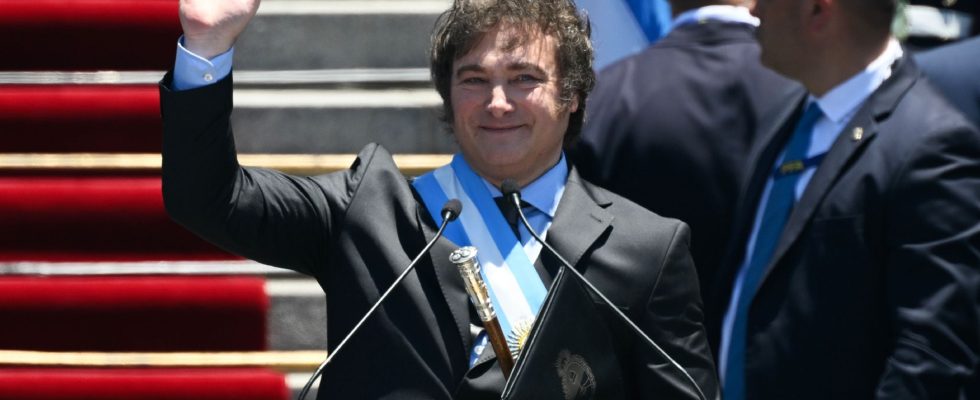More than 600 articles of law tabled, in order to continue its “liberal” revolution. While several tens of thousands of Argentines demonstrated again at the call of the unions this Wednesday, December 27 in Buenos Aires against the “mega-decree” of massive deregulation of the economy signed on December 20 and due to come into force this Friday, Javier Milei is far from slowing down the pace of his reforms. The new elected president, who took office on December 10, a convinced ultraliberal, announced the tabling of a new legislative package in order to continue his upheaval of the country in all sectors.
Very soberly named “Law of bases and starting points for the freedom of Argentines”, this legislative package aims according to the presidency “to restore the economic and social order based on the liberal doctrine embodied in the Constitution of 1853”, in “defense of the life, liberty and property of the Argentines. Jumbled together, this “omnibus law” as nicknamed by the Argentinian media impacts all areas, whether economic, political or judicial in Argentina.
Up to 6 years in prison for certain protests
This bill provides in particular for the declaration of a state of “public emergency” in the economy, taxes, pensions, security or finances, allowing the executive power to appropriate legislative prerogatives on these subjects. It also specifies the 41 public companies that the Argentine state wishes to privatize, from the oil giant YPF to the airline Aerolineas Argentinas or the railway company Ferrocarriles Argentinos.
This legislative package also “liberalizes” the private sphere, with the establishment of “express divorce” by simple administrative act. At the political level, this “omnibus” law provides for a reform of the electoral system, aiming to eliminate compulsory primary elections in the country, which are too costly for the taxpayer according to the executive.
But one measure also particularly worried part of Argentina: a change in the judicial system aimed at strengthening criminal sanctions for obstructing demonstrations. Concretely, Javier Milei wants any “intentional and temporary gathering of three or more people” to be considered a demonstration punishable by a penalty of up to six years in prison if it hinders freedom of movement or the provision of public services. A further tightening of security, while the Argentine government has already announced that the cost of maintaining order for demonstrations would now be passed on to its organizers.
Waiting for validation of the “mega-decree”
This new set of laws signals the government’s intention to move forward on the parliamentary front, while a lively debate has arisen in recent days between jurists on the constitutional nature, or not, of the “mega-decree” of 20 December. Javier Milei had in fact published last week, ten days after taking office, a “DNU” (decree of necessity and emergency), which aims to modify or repeal more than 300 standards, in particular removing rent controls, state intervention to protect prices of essential products, weakening worker protection, enabling privatizations.
This decree must come into force this Friday, pending its effective validation by Parliament, which is however not expected to examine it immediately. Theoretically in summer break, Parliament has been sitting in extraordinary session since Tuesday, but only to examine complementary draft laws, parallel to the DNU, tabled on Wednesday. The national representation has the power to repeal this “emergency decree” with the absolute majority of both chambers, which no political party holds. Milei’s party, Libertad Avanza, is only the third force, although it can count on the support of the center-right bloc, the second largest.
Measures already put in place
If the new Argentine government must therefore wait for the validation of Parliament to definitively ratify its “mega-decree” and vote for its “omnibus” law, the first austerity measures announced in the first days of the Milei presidency are already effective.
Thus the devaluation of more than 50% of the peso, the national currency, and the imminent reduction, from January, of transport and energy subsidies, destined to affect the daily lives of millions of Argentines, have already entered into force. With, for the government, the objective of a drastic reduction of Argentina’s chronic budget deficit, mired in inflation at 160% over one year. The Argentine “liberal” revolution is in any case well and truly launched.
